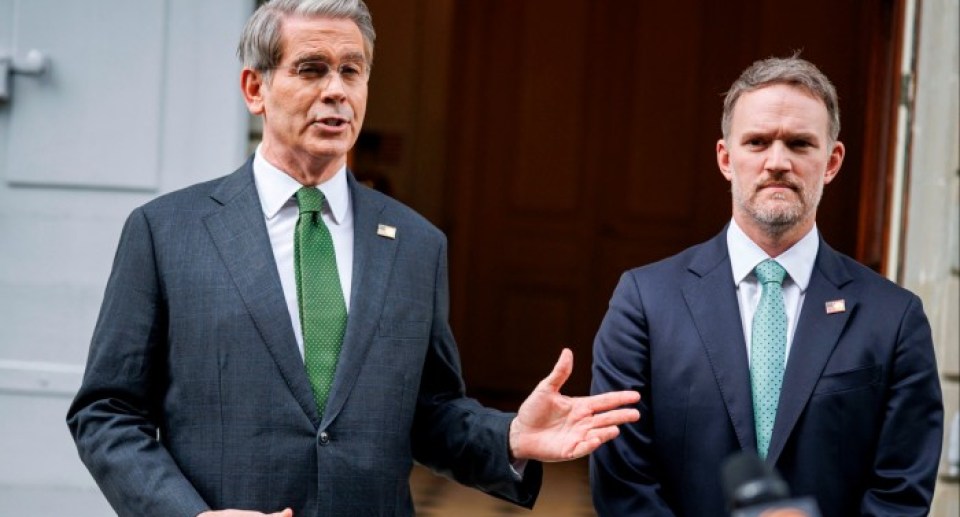US claims ‘substantial progress’ after two days of trade talks with China

[ad_1]
Unlock the White House Watch newsletter for free
Your guide to what Trump’s second term means for Washington, business and the world
Treasury secretary Scott Bessent on Sunday said the US made “substantial progress” over two days of trade talks with Chinese officials in Geneva, in the first sign that Washington and Beijing may start to ratchet down economic tensions.
“We will be giving details tomorrow, but I can tell you that the talks were productive,” Bessent told reporters after he and US trade representative Jamieson Greer finished their meetings with Chinese vice-premier He Lifeng.
Greer said it was “important to understand how quickly we were able to come to agreement, which reflects that perhaps the differences were not so large as maybe thought” and added that there had been a “lot of groundwork”.
The optimistic comments from the US negotiating team were the first sign that the countries might de-escalate the trade war that has roiled financial markets and triggered concerns about global supply chains.
The US has placed a 145 per cent tariff on goods from China while Beijing has retaliated with its own 125 per cent levy.
The Chinese embassy in Washington did not respond to a request for comment. The US and Chinese negotiation teams met at the Geneva residence of the Swiss ambassador to the UN.
Following the first day of talks on Saturday, Trump posted on his Truth Social platform that the US and China had made “great progress”. He added: “A total reset negotiated in a friendly, but constructive manner.”
In Geneva, Greer said the deal would help ease trade tensions.
“The United States has a massive $1.2tn trade deficit [with the world] so the president declared a national emergency and imposed tariffs and we’re confident that the deal we struck with our Chinese partners will help us to work towards resolving that national emergency.”
Until recently, there were few signs that either country was prepared to negotiate with the other. Chinese officials had told Washington that Trump’s tariffs on China amounted to economic bullying and warned that Beijing would not capitulate in the same way as other countries that had rushed to negotiate with Washington.
However, following a fall in the bond market and signs that the volume of trade with China was plummeting, Bessent publicly warned that the situation was not sustainable.
Earlier this week, he stressed that both sides had a “shared interest” in de-escalation since the level of tariffs imposed in both directions “isn’t sustainable”. He previously said that the high tariffs amounted to an effective trade embargo with China.
Chinese state media have made fun of what they said were US flip flops in the trade talks and the eagerness of Trump to hold negotiations.
A social media account affiliated with China’s state broadcaster CCTV said that the US had “repeatedly jumped back and forth” and was trying to contact China through “various channels” to jump-start talks.
Since the start of the trade war, officials and economic experts in both countries have also argued that the other side was more vulnerable.
Bessent said China faced economic challenges and had more incentive to come to the table. But the Trump administration became more concerned following warnings from Wall Street and after Walmart and Target told Trump that retail store shelves would become empty.
Yang Panpan of the state-affiliated Chinese Academy of Social Sciences said the US negotiating position this time was weaker, coming against a background of a weakening dollar and sinking international investor confidence in the US.
“Inflation is a major challenge [for the US],” Yang said. “Financial market instability is another challenge . . . Compared to the past, these concerns have intensified.”
[ad_2]
Source link









